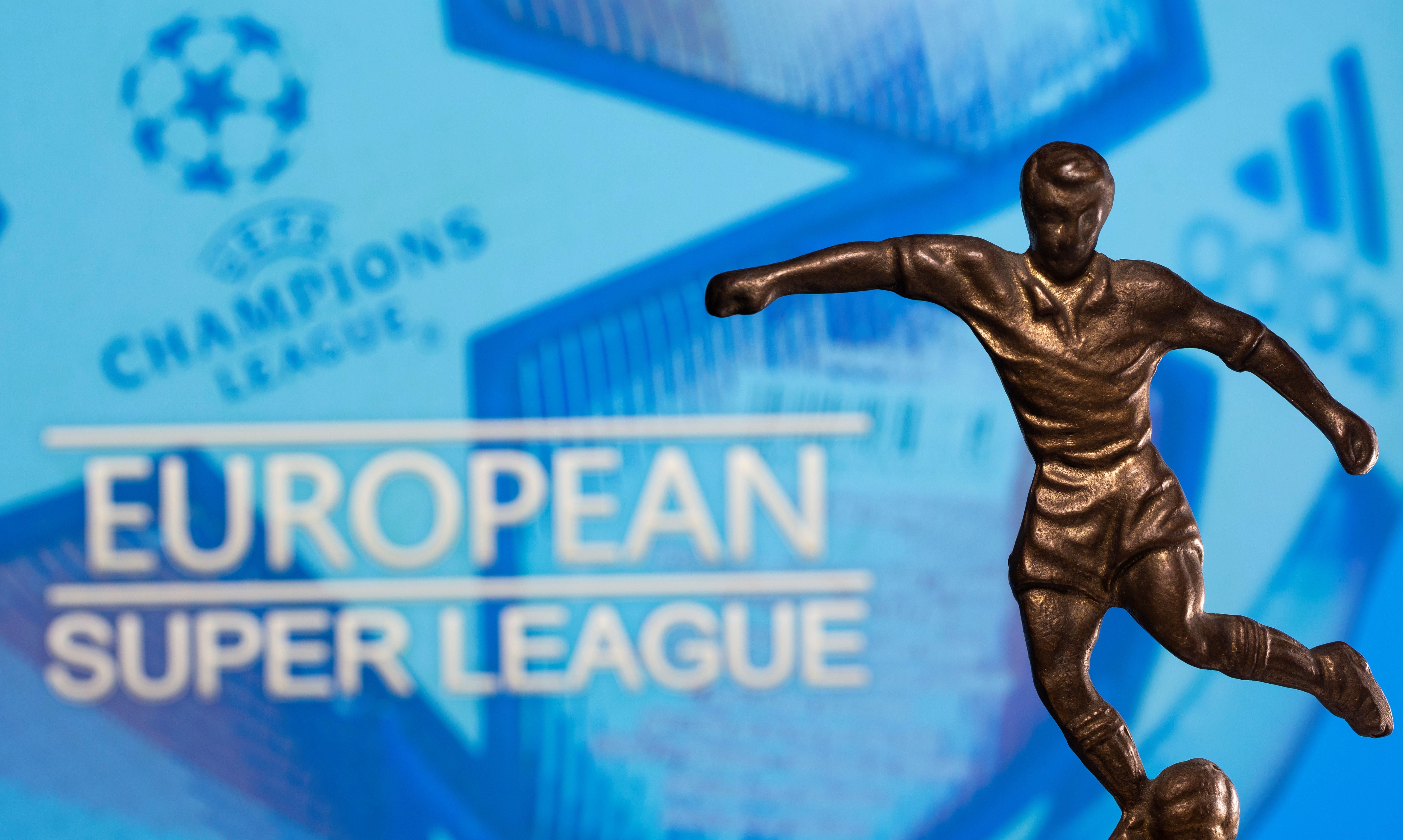Early this week, it took barely 48 hours for a multibillion-dollar separatist movement in European football to collapse. Twelve of the continent's richest clubs formed the Super League, a breakaway pan-European tournament from the world's biggest annual sports competition: the UEFA Champions League. In response to furious backlash from fans, players, managers, other clubs and governments, the project has been put on hold. But the very contentious issues that prompted the split in the first place remain unresolved.
While the dust settles, let's examine why the Super League's founders are so at odds with everyone else with a stake in European soccer, including some divisions with political undertones.
A lot of the fuss is about merit. The main argument against the Super League will hurt non-member teams, who now get to play in the 32-team Champions League if they perform well in their own national league the previous season. In contrast, the 20-team Super League reserves slots in perpetuity to the 12 founding members. Those opposed to the project argue that it's unfair for the rich clubs to always participate regardless of how they do on the pitch at home just because they together account for half of the fan base. Such a system, they add, will ultimately render national tournaments uncompetitive.
For their part, the Super League backers insist that what people really want is to watch more games involving the top teams. They don't like the planned expansion of the Champions League to 36 clubs because big-name clubs would not have guaranteed spots.
Money, money, money. The other problem is that Super League founders were set to receive $482 million each year just for taking part — more than the winner of the Champions League takes home in prize money right now. If the richest clubs have their way, haters note, they'll become an entrenched oligarchy by keeping most of the proceeds.
Super League proponents believe they deserve a way bigger slice of the pie because they are the ones who really bring in the cash for all through UEFA, the governing body of European soccer. (UEFA distributes the money it earns from TV rights, sponsorship deals and its share of ticket sales based on performance, not ratings nor the value of clubs and individual players that big corporations pay billions to sponsor their brands.)
To make matters worse, the pandemic has left empty pockets from empty stadiums. COVID has clobbered the finances of European soccer, which expect to lose an overall $7 billion in revenue this season alone. Although the crisis has hit everyone hard, wealthy clubs say they have been disproportionately affected by the shortfall because they had a lot more on the line, and many risk bankruptcy without an urgent cash infusion.
Opponents of the Super League, however, point out that rich clubs were already in the red before the pandemic because they took on too much debt in recent years to splurge on players, salaries, new stadiums, and other shiny things. Indeed, the only teams staying afloat now are those owned by foreign billionaires, or bankrolled by fabulously wealthy Gulf nation-states.
The foreign ownership issue explains why this all got political. In the UK, all six English rebel clubs pulled out of the Super League after Prime Minister Boris Johnson threatened strong regulatory action. Never one to let a good crisis go to waste, Johnson seized on the opportunity to turn himself into a defender of the working-class supporters against the uber-rich expat owners of the richest teams.
President Emmanuel Macron said non in part because France has close ties to Qatar, which the French helped win the right to host the 2022 World Cup and owns big-spending Paris Saint-Germain. And the European Commission is looking into whether the Super League would violate EU competition law.
Big business vs tradition. Thousands of fans from all over Europe took to the streets to protest what they perceive as a hostile takeover of the Beautiful Game by big business interests which belittle traditional values like equal opportunity. For most European soccer enthusiasts, if you follow a club, no matter how small, part of the excitement is that you have a fair shot at playing with the best if you do well, which is how it's always been with this sport for over a century.
Backers of the Super League view that culture as antiquated. They want to move towards a closed model similar to that of American professional sports, which are immensely popular yet maximize profit by having a set number of franchises to reduce business risk (coupled with built-in features such as salary caps and the draft system to ensure fairness, which the Super League interestingly doesn't seem to want).
So, what happens next? Pandemic-related uncertainty over the future direction of the world's biggest sport in its top market will only increase the urgency to come up with a solution that all sides can live with. Perhaps that may entail a smaller tournament that is still open to all, but has fewer yet more competitive games.
What do you think? Let us know here.